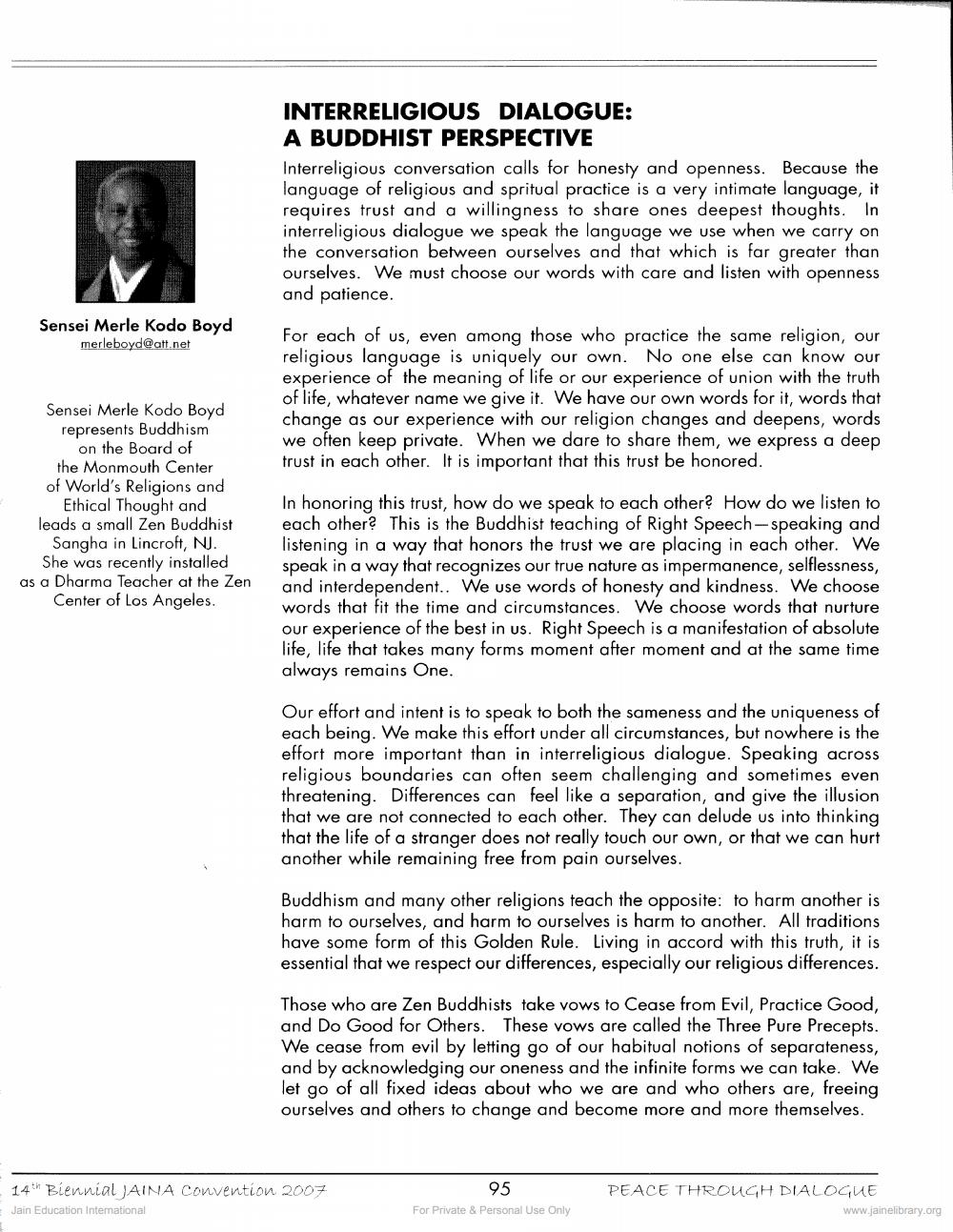________________
Sensei Merle Kodo Boyd
[email protected]
Sensei Merle Kodo Boyd represents Buddhism
on the Board of the Monmouth Center of World's Religions and Ethical Thought and leads a small Zen Buddhist
Sangha in Lincroft, NJ. She was recently installed as a Dharma Teacher at the Zen Center of Los Angeles.
INTERRELIGIOUS DIALOGUE:
A BUDDHIST PERSPECTIVE
Interreligious conversation calls for honesty and openness. Because the language of religious and spritual practice is a very intimate language, it requires trust and a willingness to share ones deepest thoughts. In interreligious dialogue we speak the language we use when we carry on the conversation between ourselves and that which is far greater than ourselves. We must choose our words with care and listen with openness and patience.
For each of us, even among those who practice the same religion, our religious language is uniquely our own. No one else can know our experience of the meaning of life or our experience of union with the truth of life, whatever name we give it. We have our own words for it, words that change as our experience with our religion changes and deepens, words we often keep private. When we dare to share them, we express a deep trust in each other. It is important that this trust be honored.
In honoring this trust, how do we speak to each other? How do we listen to each other? This is the Buddhist teaching of Right Speech-speaking and listening in a way that honors the trust we are placing in each other. We speak in a way that recognizes our true nature as impermanence, selflessness, and interdependent.. We use words of honesty and kindness. We choose words that fit the time and circumstances. We choose words that nurture our experience of the best in us. Right Speech is a manifestation of absolute life, life that takes many forms moment after moment and at the same time always remains One.
Our effort and intent is to speak to both the sameness and the uniqueness of each being. We make this effort under all circumstances, but nowhere is the effort more important than in interreligious dialogue. Speaking across religious boundaries can often seem challenging and sometimes even threatening. Differences can feel like a separation, and give the illusion that we are not connected to each other. They can delude us into thinking that the life of a stranger does not really touch our own, or that we can hurt another while remaining free from pain ourselves.
Buddhism and many other religions teach the opposite: to harm another is harm to ourselves, and harm to ourselves is harm to another. All traditions have some form of this Golden Rule. Living in accord with this truth, it is essential that we respect our differences, especially our religious differences.
Those who are Zen Buddhists take vows to Cease from Evil, Practice Good, and Do Good for Others. These vows are called the Three Pure Precepts. We cease from evil by letting go of our habitual notions of separateness, and by acknowledging our oneness and the infinite forms we can take. We let go of all fixed ideas about who we are and who others are, freeing ourselves and others to change and become more and more themselves.
14th Biennial JAINA Convention 2007
Jain Education International
95
For Private & Personal Use Only
PEACE THROUGH DIALOGUE
www.jainelibrary.org




